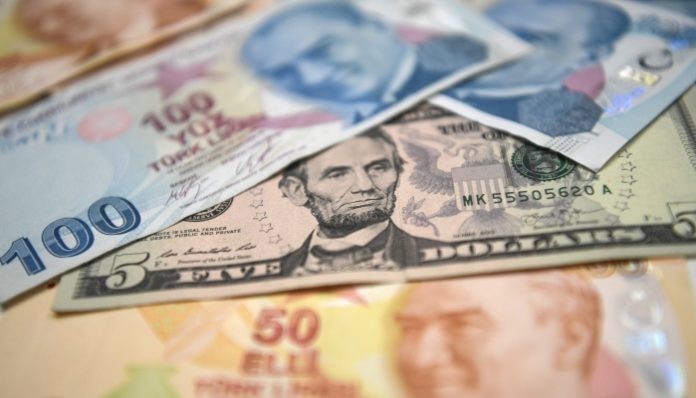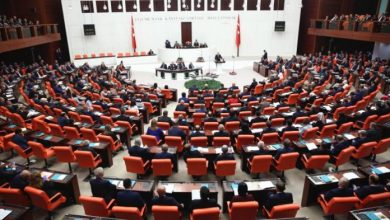
The Turkish central bank has increased its foreign currency borrowing from local banks to a record $35.5 billion in April. The lira weakened.
The borrowing, in the form of currency swaps due within the next year, increased by $5.9 billion from March, according to data published by the central bank on Thursday. That borrowing is now equivalent to about 41 percent of its gross foreign currency assets, including gold.
Turkey’s central bank has increased its borrowing of hard currency from state-run banks this year to help prop up the lira, which fell to a record low of 7.269 per dollar on May 7. Many economists and analysts now say the transactions mean the bank’s gross foreign currency reserves mask its inability to defend the lira in times of crisis.
The lira traded at 6.82 per dollar on Thursday, down 0.7 percent on the day but about 6 percent stronger than its all-time low.
The central bank said that its foreign currency reserves in April, excluding gold, dropped by 15.5 percent in a month to $50.1 billion. Its gross reserves, which include gold deposits and foreign currency owned by local banks, fell 6.3 percent to $86.3 billion.
Turkey’s monetary policymakers have been supporting the lira as they slashed interest rates to 8.25 percent this month from 24 percent last July, when President Recep Tayyip Erdoğan sacked and replaced the bank’s governor for failing to support the government’s pro-economic growth policies.
The government has called on the central bank for help as it sought to boost economic activity following a currency crisis in 2018. State-run banks have also led the drive, ramping up lending at below-market rates of interest and helping the central bank support the lira.
But the policies have come at a cost. Foreign investors have sold Turkish assets such as stocks and bonds and turned to shorting the lira. That, in turn, has prompted Turkish regulators to starve trading in the offshore currency markets and open investigations of foreign banks for alleged trading misdemeanors.
Fitch Ratings predicted this week that Turkey’s economy may contract by 3 percent this year. But Treasury and Finance Minister Berat Albayrak, Erdoğan’s son-in-law, was more optimistic in an interview with state-run TRT television on Wednesday, saying Turkey would probably post positive economic growth by the year-end.
Source: Ahval




